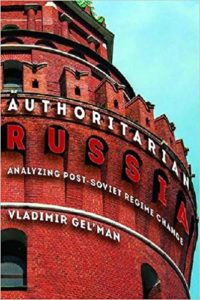 Authoritarian rule is not imposed on Russians from above but is solicited from below by the people themselves, claims Sergey Karaganov, a former Putin advisor and one of Russia’s leading intellectuals.
Authoritarian rule is not imposed on Russians from above but is solicited from below by the people themselves, claims Sergey Karaganov, a former Putin advisor and one of Russia’s leading intellectuals.
Anti-Western authoritarianism is the product of historical experience, which shaped its citizens’ “genetic code,” while a giant country like Russia would be unable to survive and defend its borders without centralized power, he told the newspaper Kommersant, MEMRI reports.
A new international “solidarity” movement is needed to propel democracy forward in Russia and respond to 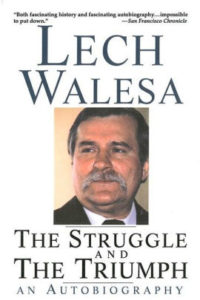 Moscow’s aggressive foreign policies, says Nobel Peace Prize laureate Lech Walesa, co-founder of Poland’s Solidarity movement and the country’s first post-communist president, VOA adds.
Moscow’s aggressive foreign policies, says Nobel Peace Prize laureate Lech Walesa, co-founder of Poland’s Solidarity movement and the country’s first post-communist president, VOA adds.
“Solidarity is a simple philosophy,” Walesa explained. “What does it say? [It says] ‘If you cannot carry your burden alone, ask others to help you.’ Go, create such solidarity, and [you’ll manage] Russia.”
“It is important to remember that there has been never been democracy in Russia. It has always been ruled by using the threat of an enemy to sustain unity,” Walesa said. “Russia even used to invent enemies to preserve its unity,” he added.
“Used to”? Why the past tense?
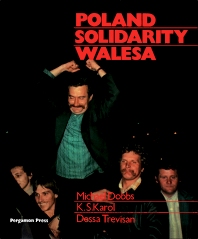 Russian State Duma lawmakers have drafted new legislation that would expand the federal government’s ability to ban foreign nongovernmental organizations accused of meddling in Russian elections, VOA’s Oleksandr Yanevskyy reports:
Russian State Duma lawmakers have drafted new legislation that would expand the federal government’s ability to ban foreign nongovernmental organizations accused of meddling in Russian elections, VOA’s Oleksandr Yanevskyy reports:
The legislation builds on a series of Russian laws that in 2012 began targeting “undesirable” activities, mainly by foreign advocacy groups, nonprofit organizations and news media outlets. The “undesirable” designation bans them from operating inside Russia, with any violation punishable by fines and jail time.
“IRI closed our office in Moscow a few years prior to receiving the ‘undesirable’ designation in 2016, so it did not directly affect our work, since we had already left the country,” the International Republican Institute’s Stephen Nix told VOA’s Russian service.
 “In recent years, the Kremlin’s practice of issuing these designations has severely undermined the already limited civil society space in Russia,” he added. “it is crucial that democracies speak out against these practices, the chief victims of which are the Russian people.”
“In recent years, the Kremlin’s practice of issuing these designations has severely undermined the already limited civil society space in Russia,” he added. “it is crucial that democracies speak out against these practices, the chief victims of which are the Russian people.”
Russia has already designated 15 other groups as undesirable, including the National Endowment for Democracy, the Open Society Foundation, the Open Russia Civic Movement and the German Marshall Fund.
Is Putin’s Russia is fated to follow the path of the Soviet Union toward decline and implosion? asks Allen C. Lynch, professor of politics at the University of Virginia. Not necessarily. As the first of the following four scenarios suggests, decline is very likely; implosion is not, he writes for The American Interest:
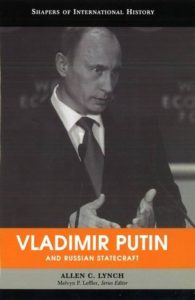 Scenario 1. Continuation of the Status Quo: Twice in the 20th century Russia attempted a liberal, Western-oriented political transformation (for eight months in 1917 and in the 1990s), and both times Russia suffered a catastrophic collapse. Yet if Putin does not begin this work soon, it will fall to others without his charismatic bond to the Russian nation and under increasingly unfavorable socioeconomic conditions. The scenario of essential continuity just outlined has an unpredictable but plausibly short expiration date: If Putin were to die or be incapacitated before his succession—not just his successor—has been established, Russian politics could assume some very novel forms.
Scenario 1. Continuation of the Status Quo: Twice in the 20th century Russia attempted a liberal, Western-oriented political transformation (for eight months in 1917 and in the 1990s), and both times Russia suffered a catastrophic collapse. Yet if Putin does not begin this work soon, it will fall to others without his charismatic bond to the Russian nation and under increasingly unfavorable socioeconomic conditions. The scenario of essential continuity just outlined has an unpredictable but plausibly short expiration date: If Putin were to die or be incapacitated before his succession—not just his successor—has been established, Russian politics could assume some very novel forms.- Scenario 2. The Disintegration of the Russian Federation: Considering that ethnic Russians and Russified Slavs, according to the 2010 census, constitute more than 80 percent of the population of Russia (historically high compared with both the Russian Empire, less than 44 percent; and the Soviet Union, around 50 percent); that Putin has spent more than a decade eliminating even façade elements of true federalism; that major non-Russian regions like Tatarstan are themselves surrounded by the rest of Russia; that Putin has cultivated a resurgence in Russian nationalism throughout the country; and that an impressive range of military and para-military backers of Putin are likely prepared by now to govern the country to fill any emergent power vacuums, it is difficult to see where the impulse for the breakup of Russia might come from…..
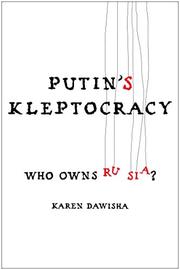 Scenario 3. Bankruptcy: Some, like the late Karen Dawisha, have compared Putin’s Russia to a mafia state. Indeed, there are many similarities, not least Putin’s role as Godfather of Russia’s various elite networks. Yet there is also a key difference: For all of his faults, Putin has insisted throughout his tenure at the top that Russia always be able to pay its way and that it be prepared for the rainy day when commodity prices collapse….If Putin’s regime were an actual mafia phenomenon, that is, an exclusively private protection and extortion racket, the sums that allowed the country to absorb the shocks of 2008 and 2014 would not have existed and Russia would have suffered the kind of bankruptcy that afflicted both Gorbachev and Yeltsin. At the same time, were Putin to die tomorrow, or fail to institutionalize his system before the onset of a succession crisis, a struggle for power and wealth might siphon off the financial resources needed to weather another crisis…..
Scenario 3. Bankruptcy: Some, like the late Karen Dawisha, have compared Putin’s Russia to a mafia state. Indeed, there are many similarities, not least Putin’s role as Godfather of Russia’s various elite networks. Yet there is also a key difference: For all of his faults, Putin has insisted throughout his tenure at the top that Russia always be able to pay its way and that it be prepared for the rainy day when commodity prices collapse….If Putin’s regime were an actual mafia phenomenon, that is, an exclusively private protection and extortion racket, the sums that allowed the country to absorb the shocks of 2008 and 2014 would not have existed and Russia would have suffered the kind of bankruptcy that afflicted both Gorbachev and Yeltsin. At the same time, were Putin to die tomorrow, or fail to institutionalize his system before the onset of a succession crisis, a struggle for power and wealth might siphon off the financial resources needed to weather another crisis…..- Scenario 4. Emergence of a Democratic Alternative: The legacy of the 1990s remains a powerful force supporting both Putin’s legitimacy and the predominant anti-Western tendency in Russian politics and society today…. The one leader that Putin’s network genuinely fears, 42-year old Alexei Navalny, is no liberal. Rather, Navalny is a charismatic populist who has seized on the most explosive issue in Russian politics, the one that everyone knows has the potential to bring down Putin’s house of cards…The point is that, even in the event that a Navalny-like figure comes to power, Russia would remain far from liberal and still suspicious, at best, of the West in general and the United States in particular.
“The most likely, and likely least dangerous, alternative to the Putin machine would be a regime with its foundation in one faction of the militocracy, allied with the Orthodox Church and a charismatic public figure like Navalny or Shoigu to give it popular legitimacy,” adds Lynch, the author of Vladimir Putin and Russian Statecraft (Potomac Books, 2011). “This sounds a lot like the Spain that emerged under Franco after 1939.”







